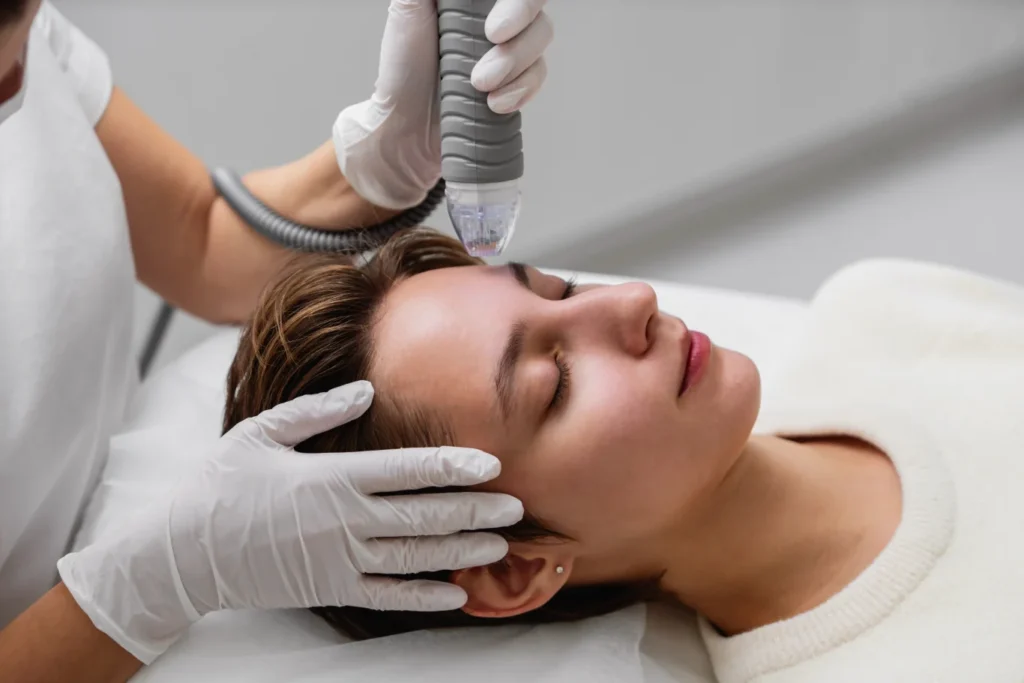In recent years, exosome therapy has become one of the most exciting frontiers in regenerative and aesthetic medicine. Originally studied for its role in cell communication and tissue repair, exosome-based treatments are now gaining momentum in Korea not only for skin rejuvenation, but also for immune modulation and anti-inflammatory support. Korea’s advanced biotechnology and clinical research make it a hub for cutting-edge exosome therapies.
Let’s dive into how exosomes work, and why they’re becoming a game-changer for people seeking immune-boosting and anti-inflammatory benefits in Korea.
🔬 What Are Exosomes?
Exosomes are nano-sized vesicles (30–150 nm) naturally secreted by stem cells and other cells in the body. These vesicles contain:
- Proteins
- Lipids
- RNA (mRNA and miRNA)
- Cytokines and growth factors
They act as messengers, transferring these bioactive substances between cells to:
- Promote tissue regeneration
- Modulate immune responses
- Reduce inflammation
- Enhance cellular repair
🇰🇷 Why Exosome Therapy Is Thriving in Korea
South Korea is a global leader in stem cell research, bioengineering, and aesthetic medicine, with a growing emphasis on preventive and regenerative care. Korean clinics offer highly advanced exosome formulations derived from:
- Mesenchymal stem cells (MSCs)
- Adipose-derived stem cells
- Umbilical cord blood stem cells
These exosomes are purified and standardized for use in IV drips, injectables, topical applications, and post-procedure recovery protocols.
🌿 Immune-Boosting Benefits of Exosomes
1. Regulation of Immune Cells
Exosomes can balance immune responses by:
- Inhibiting overactive immune cells (T-cells, macrophages)
- Promoting regulatory T-cells (Tregs) that suppress excessive inflammation
- Enhancing natural killer (NK) cell activity for improved defense
This makes exosome therapy beneficial for:
- Chronic fatigue
- Autoimmune disorders (e.g., lupus, rheumatoid arthritis)
- Post-viral recovery (e.g., long COVID)
2. Increased Cellular Resilience
Exosomes improve the cellular environment by delivering anti-oxidant enzymes and protective molecules that:
- Reduce oxidative stress
- Support mitochondrial function
- Encourage DNA repair
This strengthens overall immunity and cellular longevity.
🔥 Anti-Inflammatory Benefits of Exosomes
1. Cytokine Modulation
Exosomes modulate inflammatory signaling by:
- Downregulating pro-inflammatory cytokines (e.g., IL-6, TNF-alpha)
- Upregulating anti-inflammatory mediators (e.g., IL-10, TGF-beta)
This is helpful for:
- Joint pain and arthritis
- Inflammatory skin conditions (eczema, psoriasis)
- Post-laser or post-surgical recovery
2. Tissue Repair and Wound Healing
Exosomes enhance regeneration by promoting:
- Collagen production
- Angiogenesis (new blood vessel formation)
- Faster epithelial repair
Clinics in Korea often combine exosomes with microneedling, laser treatments, or PRP for enhanced healing and reduced downtime.
💉 How Exosome Therapy Is Administered in Korea
Korean clinics offer multiple delivery methods:
- IV Drip Therapy: For full-body immune and anti-inflammatory benefits
- Intramuscular or Subcutaneous Injection: For targeted systemic support
- Topical Post-Treatment Application: For skin rejuvenation and reduced inflammation
- Scalp Injections: For hair loss related to stress or autoimmune conditions
✅ Clinical Indications in Korea
Exosome therapy is used to support or complement treatments for:
- Autoimmune and inflammatory diseases
- Chronic fatigue and burnout
- Allergic reactions and skin inflammation
- Post-viral recovery
- Chronic pain and joint inflammation
- Anti-aging and skin repair
📈 Emerging Trends in Korea
- Exosome + NAD+ IV Therapy: Combines cellular repair with mitochondrial energy support
- Exosome Cosmeceuticals: Serums and masks used in luxury skincare clinics
- Personalized Exosome Protocols: Tailored to immune status, aging biomarkers, or inflammatory profile
- Post-COVID Recovery Clinics: Using exosomes to combat lingering inflammation and fatigue
🧪 Safety and Regulatory Status
In Korea, exosome products are regulated under biomedical and cell therapy guidelines, ensuring:
- Sterility
- Non-toxicity
- Consistent dosing
- Lab-verified purity
Clinics offering exosome therapy typically partner with certified biopharma labs that produce GMP-grade exosome products.
🧘 Final Thoughts: The Future of Immune Support in Korea
Exosome therapy in Korea is no longer limited to skincare—it’s part of a broader regenerative wellness movement. With their dual ability to regulate the immune system and reduce inflammation, exosomes offer powerful potential for those looking to:
- Strengthen immune resilience
- Improve recovery after illness
- Reduce chronic inflammation
- Support graceful aging from the inside out
As the science continues to evolve, Korea remains at the forefront of safe, effective, and personalized exosome-based therapies.




